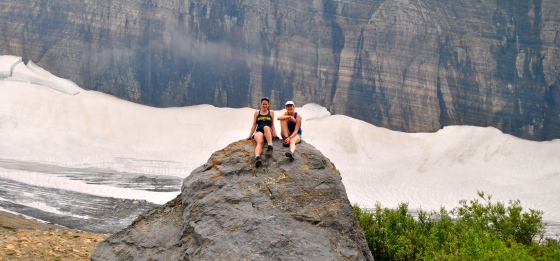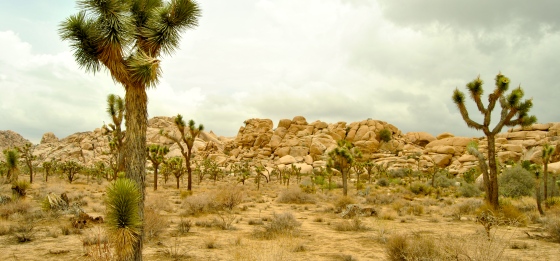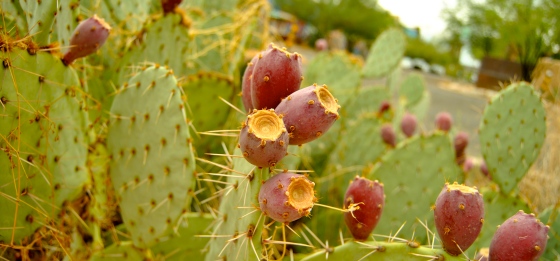
Tag Archives: drought


On Flood and Thirst: How Communities Are Adapting to the Age of Unpredictable Water
In Keene, New Hampshire, Duncan Watson looks out the window with trepidation as rain pounds the glass of his office at the Public Works Department; in 2005, a flood in his hometown killed seven people. And across the country in Santa Fe, New Mexico, forest fuels specialist Bill Armstrong fears he’s losing a race against the clock to thin and prescriptively burn the tree-crowded national forest before a prolonged drought sets the stage for another mega-fire.
What do these two men have in common? They’re on opposite sides of the same coin, dealing with the consequences of what Watson calls a “caffeinated climate” in which change is not so much about the slowly rising thermostat, but about more pronounced extremes, from very wet to very dry.

Fighting Drought with a New Super Corn
Gothenburg, Nebraska to Belmond, Iowa
August 14-17, 2013
So how exactly do you win a tilling competition? We’re at the Prairie Homestead Antique Power and Country Craft Show in Belmond, Iowa, of all places, watching farmers on tractors practicing for the next day’s tillage contest.
“You drive as straight as you can,” David Sieck, of Glenwood, Iowa, tells us. Sieck, a former president and current board member of the Iowa Corn Growers Association, has been growing field corn (used for animal feed and ethanol) in Iowa for over 35 years.

Preventing a Joshua Treeless National Park
July 21-22
Joshua Tree National Park, California
The desert has much to teach us about the marvels of adaptation. Relentless sun, little water, and summer temperatures over 100 degrees Fahrenheit can make a forbidding world for non-desert dwellers. Yet hundreds of species conserve moisture and beat the heat in fascinating ways. –Joshua Tree National Park visitor’s map

Rainwater Harvesters Reap Bounty in Arid Tucson
Tucson, AZ
July 19, 2013
Brad Lancaster describes the strip of vegetation beside the sidewalk outside his Tucson, Arizona home as “an orchard and a pharmacy.” The desert ironwood tree has peanut flavored seeds and blooms that make a delicious salad garnish. Creosote is good for athlete’s foot. Chuparosa has a red flower that tastes like cucumber. The barrel cactus’s yellow fruit can be used for chutneys or hair conditioner. Mesquite pods make nutritious flour. And many more. Depending on the season, Lancaster gets 10 to 20 percent of his food from this sidewalk garden, and another in his yard.

Denver Residents Pay Forest Service to Keep Their Water Clean
July 11-14, 2013
Denver, CO
As we stand at the Dillon Reservoir in the Rocky Mountains of Colorado, we’re daunted by the expanse of water. Sailboats and speedboats zip back and forth, enjoying the summer season. At one end, the water is mostly contained by a high cement wall but for a steady stream slipping over the dam on its way to Denver. Abutting the reservoir is the White River National Forest, made up mostly of lodgepole pine trees. Some trees are laid barren by the pine beetle, some scarred by fire, some still healthy.

Colorado Fruit Growers Harness Wind, Water, and Fire to Save Harvest
July 8-10, 2013
Paonia & Hotchkiss, Colorado
Glenn Austin started farming on his family’s organic dairy and tobacco farm in Tennessee at the ripe age of five. As a young man, he worked for Monsanto, but after several years Austin decided petrochemical fertilizers weren’t for him, so he and his wife made the move from Tennessee to the Western Slopes of Colorado’s Rocky Mountains to plant a sustainable orchard. This year he turns 70 and marks his 43rd year farming in Paonia. When we hopped on Austin’s golf cart to tour his family farm, which sits high on a mesa in the North Fork Valley, things were in full swing. Continue reading
Georgia Farmers Irrigate Smarter
Camilla, Georgia
June 24, 2013
Transcript:
Allie Goldstein: This is Allie Goldstein and Kirsten Howard of Adaptation Stories. On June 24, 2013, we visited Camilla, Georgia.
We spent the day with Casey Cox, a 21-year-old, sixth-generation Georgian who just finished college and has returned to Camilla to help run her family farm. Some people were surprised by her decision.
Queen Quet, Unedited
Saint Helena Island, South Carolina
June 22, 2013
The Gullah/Geechee people, descendants of enslaved Africans captured in Angola and other parts of the Western Seaboard of Africa who now stretch from Jacksonville, North Carolina to Jacksonville, Florida, do not have a word for “adaptation” or “resiliency” in their Creole language. And yet, as Queen Quet, the elected head-of-state for the Gullah/Geechee, explains in the (unedited) clip above, the Gullah/Geechee are an incredibly resilient people: they maintained their culture through slavery and today continue traditional farming practices on family compounds.
“What we understand, or overstand as I like to say—that’s what others call adapting,” Queen Quet said. “We call it living.”
